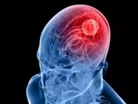Parents need to be vigilant in spotting brain tumours

A new campaign designed to teach parents how to spot the symptoms of a brain tumour in children is being launched as it emerged that Britain has one of the worst diagnoses rates of the disease.
Brain tumours are the most common cancer-related deaths in children with 500 children and teenagers being diagnosed with the condition every year.
A quarter of all cases of child cancer are brain tumours and two-thirds of children that survive the illness are left with severe disabilities.
However, compared to the U.S and Canada it could take up to three times longer for a child to be diagnosed with a brain tumour in the UK.
READ MORE FROM THE WDM CONTENT NETWORK:
To read the latest edition of Healthcare Global, click here
- Smart bandage changes colour to track healing wounds
- Hypnosis treatments could save millions for the NHS
- Pomegranate juice relieves work-related stress
In a move to tackle this problem, the new ‘Headsmart’ initiative has been launched which aims to increase both parents’ and GPs awareness of brain tumours to hopefully improve diagnoses rates.
It is thought that the common symptoms of brain tumours; headaches, fits, blurred vision, poor eyesight, and vomiting; are often mistaken for other illnesses.
Parents may also spot behavioural changes and problems with balance and coordination in children with brain tumours.
Symptoms of brain tumours differ along with the child’s age and this confusion means that precious treatment time is lost while a correct diagnosis is being made.
A number of organisations have come together to launch Headsmart, including the Samantha Dickson Brain Tumour Trust, the University of Nottingham’s Children's Brain Tumour Research Centre and the Royal College of Paediatrics and Child Health.
Professor David Walker, who is from the Children's Brain Tumour Research Centre at the University of Nottingham said in a media interview: “There are two risks with delayed diagnosis; one is early death and the other one is greater brain injury.”
“Brain tumours can be difficult for doctors to diagnose because the symptoms can often mimic less serious illnesses,” he added.
Walker gave this advice to parents: “Parents have no need to worry if their child occasionally experiences headaches, but if symptoms come back frequently or are present for more two weeks or more, see your doctor.”
“The most important thing is that parents and family doctors know the symptoms of child brain tumours and make sure that possible cases are diagnosed as quickly as possible.”



